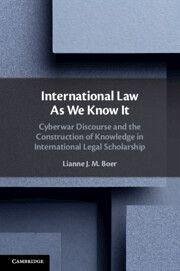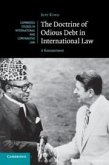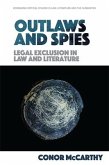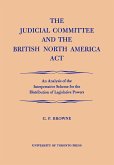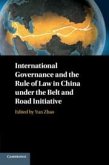International legal scholars tend to think of their work as the interpretation of rules: the application of a law 'out there' to concrete situations. This book takes a different approach to that scholarship: it views doctrine as a socio-linguistic practice. In other words, this book views legal scholars not as law-appliers, but as constructing knowledge within a particular academic discipline. By means of three close-ups of the discourse on cyberwar and international law, this book shows how international legal knowledge is constructed in ways usually overlooked: by means of footnotes, for example, or conference presentations. In so doing, this book aims to present a new way of seeing international legal scholarship: one that pays attention to the mundane parts of international legal texts and provides a different understanding of how international law as we know it comes about.
Bitte wählen Sie Ihr Anliegen aus.
Rechnungen
Retourenschein anfordern
Bestellstatus
Storno

